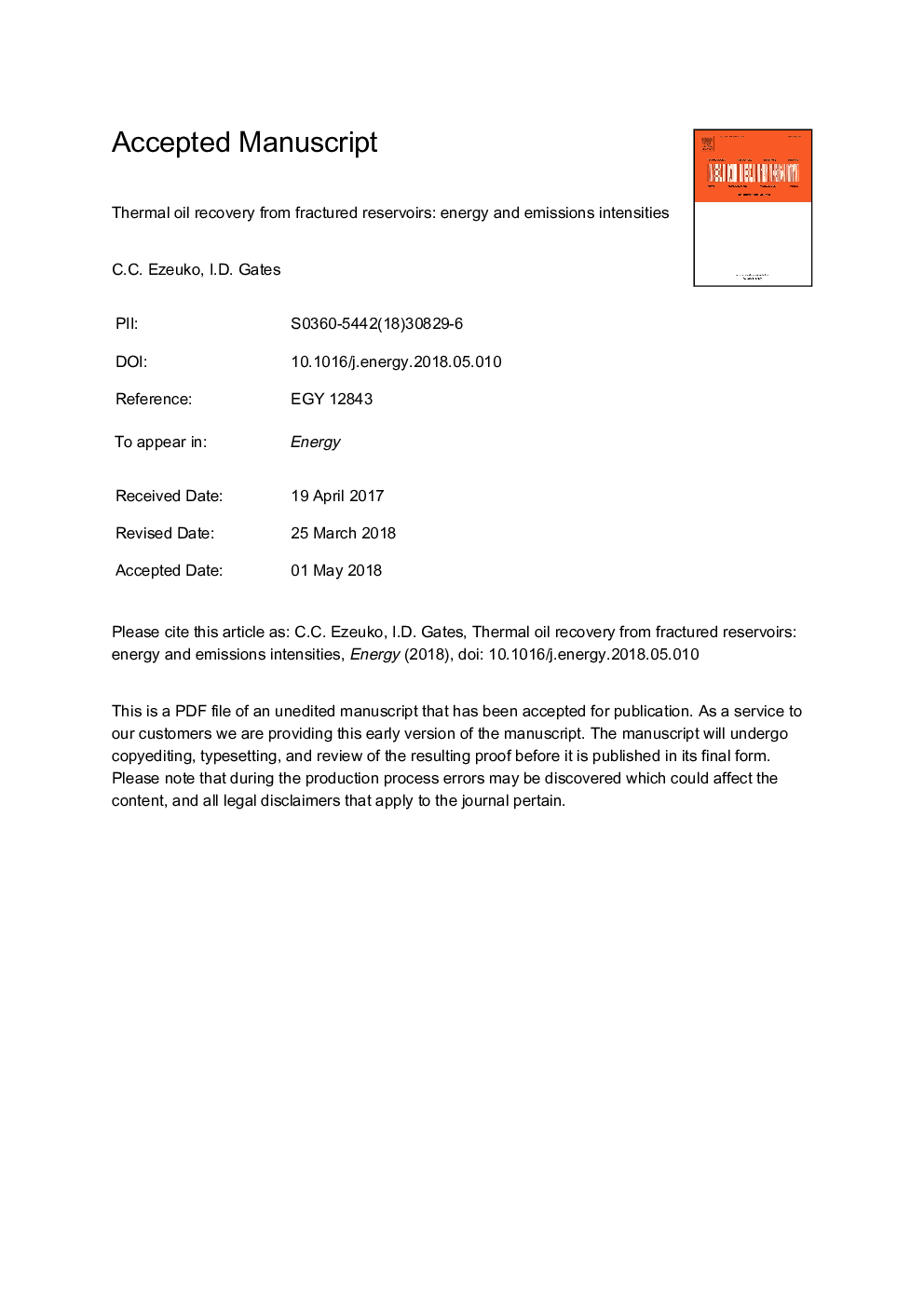| Article ID | Journal | Published Year | Pages | File Type |
|---|---|---|---|---|
| 8071385 | Energy | 2018 | 27 Pages |
Abstract
Increasingly, more focus has been placed on recovering heavy oil from fractured reservoirs. The key challenge of these reservoirs is the nature of the rock with its geological and rock-fluid complexities as well as the viscosity of the oil itself and the difficulties of lowering the viscosity of the oil. The research documented here presents an analysis of the energy and emissions impact of thermal (steam-based) oil recovery from naturally fractured carbonate reservoirs. By using a combination of the dual porosity concept and energy balance, the method offers a solid analytical approach to evaluate the ideal performance in terms of both energy utilization and greenhouse gas (GHG) emissions for thermal recovery from naturally fractured reservoirs. The results provide a limit on energy efficiency and emissions when recovering oil from these systems by using steam. The results reveal that the energy efficiency and GHG emissions per unit oil produced should be improved for thermal recovery processes operated in fractured reservoirs.
Related Topics
Physical Sciences and Engineering
Energy
Energy (General)
Authors
C.C. Ezeuko, I.D. Gates,
